
In the previous post I looked at the possible origins of the phrase ‘big bang’ — as in ‘Big Bang’ — in Operation Big Bang, the partial destruction in 1947 of Heligoland, a German island in the North Sea. I also suggested that there was longer history to the phrase ‘big bang’, which I’ll also dig into here — partly for its own sake, partly to illustrate how easy it is track a term’s popularity over time in the British Newspaper Archive (BNA). And partly because I love the headline above, over 70 years before the other Big Bang was ‘photographed’ by COBE.
So first, all you need to do — you don’t even need an account to do this, though you won’t be able to look at most of the articles you find unless you do — is type the word or phrase into the search box on the BNA home page, in double quotation marks if it’s a phrase. This gives you a quick breakdown of the number of hits for each half-century. (Select ‘Exact search’ if you want to exclude variant phrases.) For ‘big bang’, as of 15 October 2021 (because more pages are being added all the time, I try to note the date, not that anyone can really check my work or anything), this yields a search screen like this:
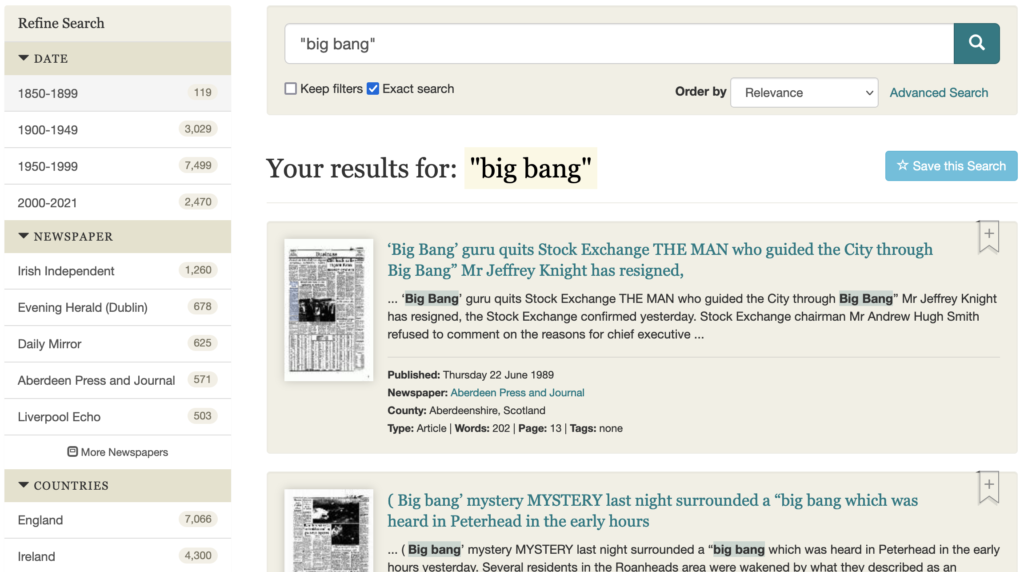
On the left side are the various filters by which you can narrow down your search by date, newspaper, country, region, county, place, type, and tag. It’s date we’re interested in here:
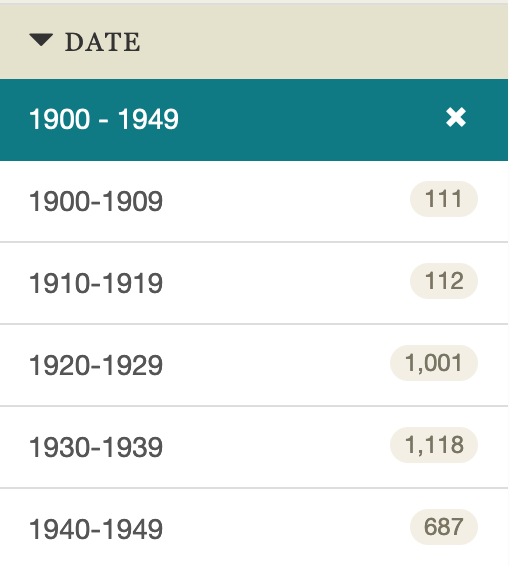
This breaks down the number of articles containing ‘big bang’ into half-century chunks. You can immediately see that in 1800-1849 and 1850-1899 there are almost no results. It’s only in 1900-1949 that the numbers shoot up, relatively speaking, by a factor of 21. But wait a minute: maybe there are just more newspaper articles in BNA in 1900-1949 than for 1850-1899, so you’d expect to see more ‘big bangs’? Unfortunately we can’t get (or I don’t know how to get) the total number of articles. But we can get a quick but good proxy by doing a search for the word ‘a’ which, as the most common English world which BNA doesn’t use as a stop word, will be in the vast majority of articles:

So let’s go back to ‘big bang’ and keep drilling down through the time bins to find out when it became a thing.

So it wasn’t during the First World War, otherwise a big time for big bangs. It was in the 1920s.
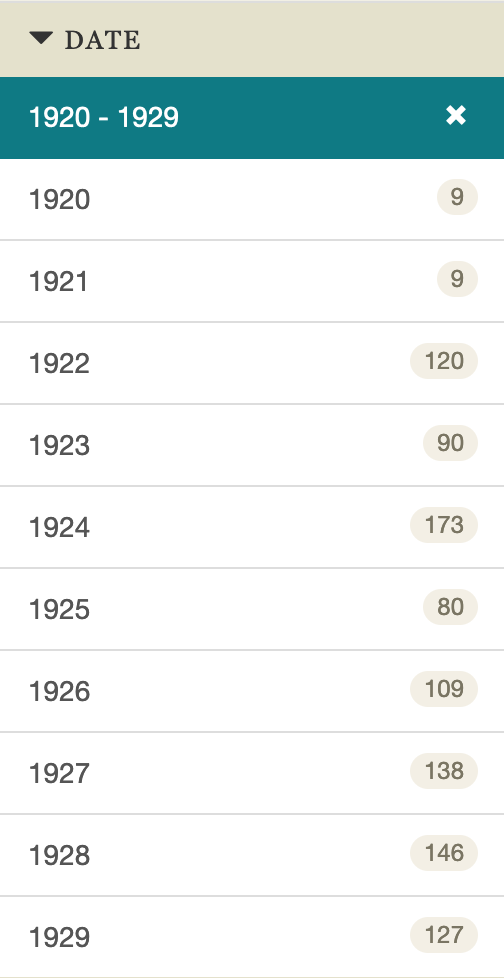
It was in 1922, in fact. There we see a jump from 9 articles with the phrase ‘big bang’ in 1921 to 120 in 1922, and it stays at around that level for the rest of the decade.
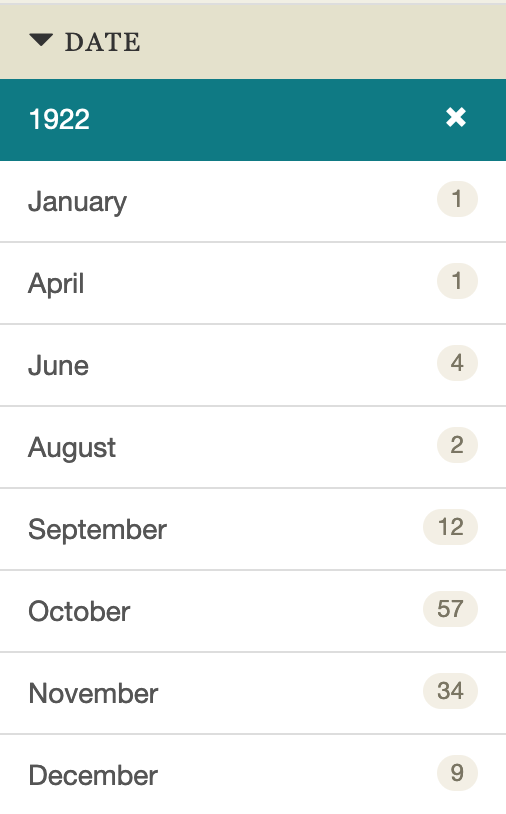

Peaking in October, with the key period being the few days right at the end of the month.

Specifically, 30 October 1922. So let’s look at the top articles for that date:
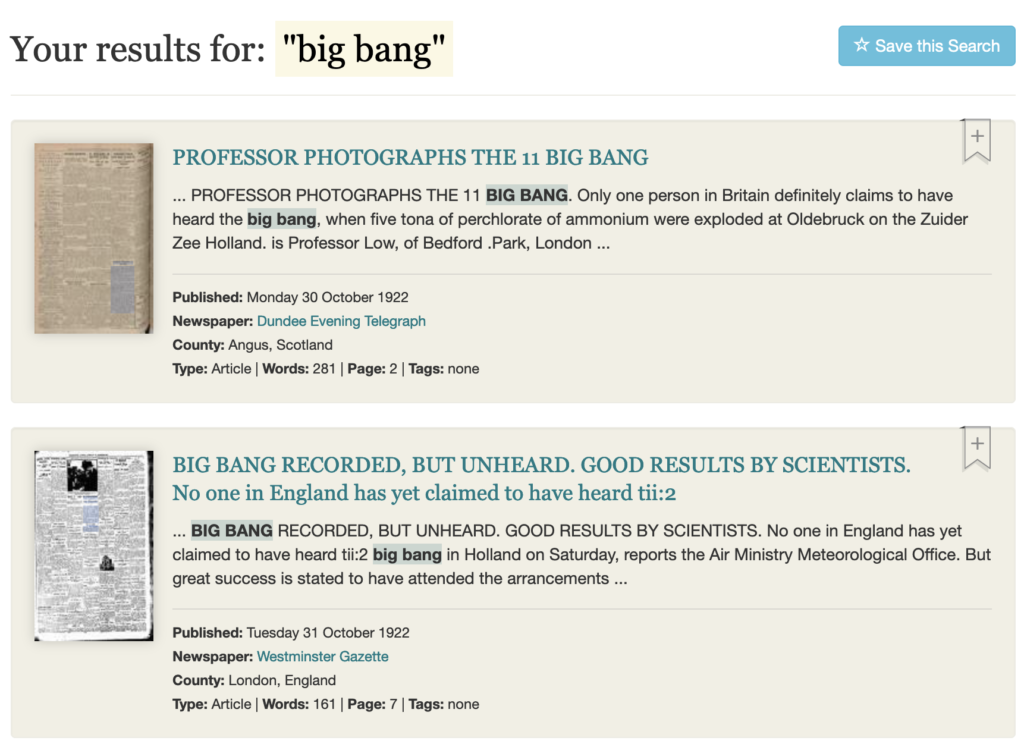
And the top hit is the ‘PROFESSOR PHOTOGRAPHS THE BIG BANG’ headline from the top of this post:
Only one person in Britain definitely claims to have heard the ‘big bang,’ when five tons of perchlorate of ammonium were exploded at Oldebruck [sic; Oldebroek] on the Zuider Zee in Holland. He is Professor Low, of Bedford Park, London, and besides hearing it he claims to have obtained a ‘sound photograph’ of it.1
It turns out that this big bang was, like the Heligoland Big Bang, another intentional explosion, this time with a more deliberately scientific purpose. Nature described the explosion as an international experiment to help explain ‘curious anomalies’ in the propagation of sound from ‘great explosions’, which are ‘closely connected with the meteorological conditions, though the detailed relationship between them is not known’:
The International Commission for the Investigation of the Upper Air appointed a sub-commission to consider the problem set out above, and the sub-commission applied to various Ministries of War with the view of obtaining their collaboration in the case of obligatory destruction of explosives. The first favourable reply came from the Dutch Ministry of War, and it was finally arranged that at 17h. G.M.T. on October 28 [1922], five tons of ammonium perchlorate should be exploded on the Oldebroek Artillery Drill Ground (longitude 5° 59′ 40″; latitude 52° 29′ 56″).2
The Oldebroek explosion was originally announced for September, though delayed for a month. Who first called it a ‘big bang’ is not clear, but the earliest instance in BNA in this connection is an article in the Portsmouth Evening News from 23 September, entitled ‘A big, big bang’:
If a big bang is heard during the weekend no one need be alarmed. It will be a scientific experiment arranged by the Netherlands government in connection with the transmission of the sound of explosions. The big bang will consist of the explosion of ten tons perchlorate of ammonium, and is timed for 8..30 p.m. (summer time), a day to be fixed […] Official ‘listeners-in’ have been appointed, and in the countries surrounding the explosion observers are invited to watch for evidence of the big bang.3
(That’s four big bangs, if you’re counting.) The term caught on from here: most of the articles about the Oldebroek explosion (not that there were a lot) in the following six weeks called it a big bang, such as this discussion the Aberdeen Daily Journal:
Mystery of the ‘Big Bang.’
The ‘big bang,’ as Londoners facetiously called the explosion in Holland, was rather a fiasco as far as London, and the south was concerned. I have not met anybody inside the Metropolitan area who heard anything of the explosion at all. London’s usual traffic noises wore apparently too strong.4
And thereafter, as the quick-and-dirty BNA numbers suggest, ‘big bang’ burbled along through the 1920s and 1930s as a term for a big explosion: in 1924, an Army artillery competition was described as the ‘Sheffield “big bang”‘; in 1927, a ‘Record Big Bang’ was expected in Dundee for the Fifth of November ; in 1935, a big quarry detonation was described as ‘Scotland’s Big Bang’.5
To be clear, while the words ‘big bang’ certainly appear together in BNA before 1922, they don’t seem to have been recognised as a phrase — just to describe a bang that, somewhat redundantly, happened to be big. Conversely, by 1949, when Fred Hoyle spoke on the BBC about the expanding universe theory, ‘big bang’ was available as a stock phrase, and indeed, as he was born in 1915, had been since he was a small boy. So, while he may have got it from the Heligoland Big Bang via the scientific literature, he may also have got it from Guy Fawkes Night.
Finally — because Airminded — let’s tie this back to aviation. Why such an interest in 1922 in the propagation of sound from large explosions? Since in 1947 there seems to have been a connection to the late war, in the form of atomic explosions, we might suspect some connection here to the other late war — something to do with artillery ranging, perhaps, or sound detection of aircraft. But, as far as I can see, neither the discussions in Nature nor the articles in BNA mention or speculate on any warlike purpose to the Oldebroek experiment. In fact it’s mostly presented as pure science, and it was the Meteorological (or Met) Office which collated the observations in Britain. But in 1919 the Met Office had been moved from the Board of Trade to the Air Ministry, in recognition of the importance of weather forecasting for aerial navigation. Perhaps, then, the first big bang helped pave the way for the upcoming aerial age.
![]() This work is licensed under a Creative Commons Attribution-NonCommercial-NoDerivatives 4.0 International License.
Permissions beyond the scope of this license may be available at http://airminded.org/copyright/.
This work is licensed under a Creative Commons Attribution-NonCommercial-NoDerivatives 4.0 International License.
Permissions beyond the scope of this license may be available at http://airminded.org/copyright/.
- Evening Telegraph (Dundee), 30 October 1922, 2. [↩]
- ‘Propagation of the sound of explosions’, Nature 110, no. 2766 (1 November 1922): 619–620. [↩]
- Evening News (Portsmouth), 23 September 1922, 7. [↩]
- Aberdeen Daily Journal, 30 October 1922, 4. [↩]
- Sheffield Daily Telegraph, 27 August 1924, 7; Evening Telegraph (Dundee), 3 November 1927, 5; Courier and Advertiser (Dundee), 31 May 1935, 7. [↩]


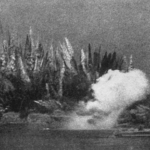
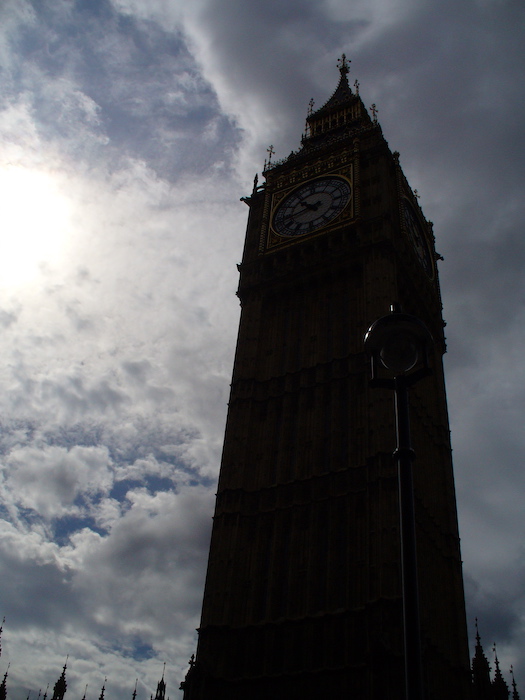

Two years after the “Big Bang” talk, but still an interesting connection:
“Ewing, M. and Press, F.: Tide?gage disturbances from the great eruption of Krakatoa, Eos, Transactions American Geophysical Union, 36, 53-60, 1955, previewed in “Volcano and Ice,” Time, 26 March 1951.
Ewing and Press, working from reports that the “famous explosion” of Krakatoa in 1883 send “air waves seven times around the world,” discovered a Royal Society report on the associated sea wave, concluded that reported anomalous tidal gauge readings previously associated with the sea wave, were in fact induced by the “air wave,” developed a theory to predict the effect, and turned it into a way to assess the thickness of sea ice by bombing it, funded by the Air Force, ostensibly to measure the thickness of Arctic ice lest those damn Commies, etc, etc. (We are talking about the Fifties, and the Luce press, here.)
It’s all a bit strained, but it definitely starts with a “bang” heard around the world.
I spent five years – part-time – in the British Library Newspaper Department years ago researching something. With the BNA I could spend five minutes fixing my terms and perhaps a week getting all the details. Mind you, I’d have missed a lot of other interesting things I came across looking.
A friend tells the story of how he wanted to track down the source of a passage written by Matthew Arnold. The trouble was his source was a French translation. Via Googlebooks it took ten minutes to find the translation and theEnglish original. The book with the French version isn’t in the BL, so – if he was eager enough – he’d have had to got the BNL. As the translation was a passing reference it’s quite likely he’d never have come across it at all.
Erik:
I’m sold!
Rawdon:
Absolutely! I’ve done my time at Colindale and other physical newspaper archives, too, and while it’s true that you miss things that way (not least a sense of how newspapers actually worked, in terms of layout, attention, advertising, and so on), I wouldn’t trade it for what we have today with BNA/Trove/etc. I guess I’m glad to have done it the old-fashioned way — but I’m glad that it is old-fashioned now.